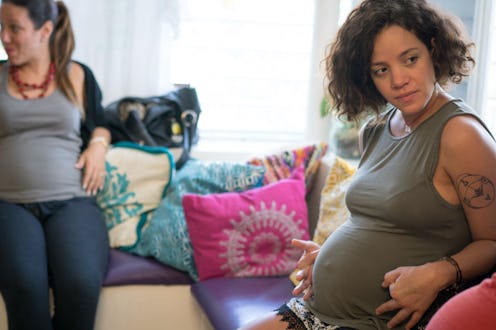News
A Feminist Issue Congress Needs To Take Action On
Congress is officially back in session, and there is a lot of work to do. With a health crisis facing low-income women in parts of Florida, it's pretty urgent, too. Specifically, the Zika virus has proven to be a serious reproductive health issue for women in many parts of the world, and now in the United States. With Capitol Hill recently back in action, female activists and leaders are putting increased pressure on Congress to take immediate action on Zika.
At least 90 female leaders have signed on to open letter addressed to Congress to pass a funding bill to address the growing crisis in the United States, suggesting that its spread in Florida and to other states is a threat "to the health and economic security of all families."
The letter, signed by Planned Parenthood's Cecile Richards, activist Gloria Steinem, WAM Executive Director Jamia Wilson, Executive Director of Family Values @ Work, Ellen Bravo, and many others, notes that particularly in Miami, "[Many] expectant and prospective parents are employed in low-paid jobs in the tourist industry, cleaning hotel rooms, serving food in restaurants, or caring for the frail elderly as home health aides." The letter adds that these individuals "cannot simply leave their jobs and move to a safer environment for nine or more months; most do not even have a single paid sick day to use to get tested for Zika without losing their pay and maybe even their jobs." The Zika virus has been increasingly associated with birth defects, such as microcephaly, putting individuals who are pregnant or are trying to get pregnant at a heightened risk.
The letter adds that "restrictive state laws compound this barrier [to contraception and abortion services for low-income women." As of Aug. 31, there were 507 travel-related Zika cases across Florida and 35 local cases, The Miami Herald reported, using data from the Centers for Disease Control and Prevention. For women who are pregnant and at risk of being exposed to the virus, access to affordable reproductive health services is incredibly important. Unfortunately, the state of Florida has imposed various restrictions on such services.
For instance, an individual is required to seek state counseling services and must undergo a mandatory waiting period of 24 hours before receiving an abortion in the state. Similarly, the Guttmacher Institute notes that public funding for abortion services is only available in cases of "life endangerment, rape, or incest," making these services hard to access for low-income women.
The open letter to Congress calls for access to reproductive health services, funding for Zika prevention and education, national paid sick days, and funding to develop a vaccine. For low-income families, it is especially important to ensure access to health services for the prevention and management of the Zika virus. Congress is expected to pass a bill by the end of this month, though Senate Democrats have consistently pushed back against the House bill because of a provision to block funding for Planned Parenthood in Puerto Rico.
